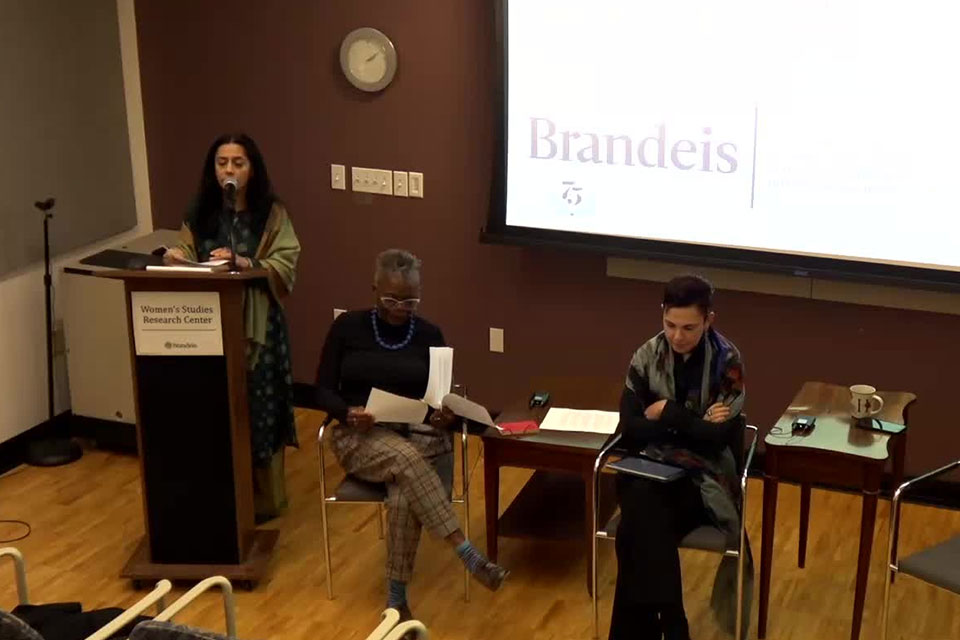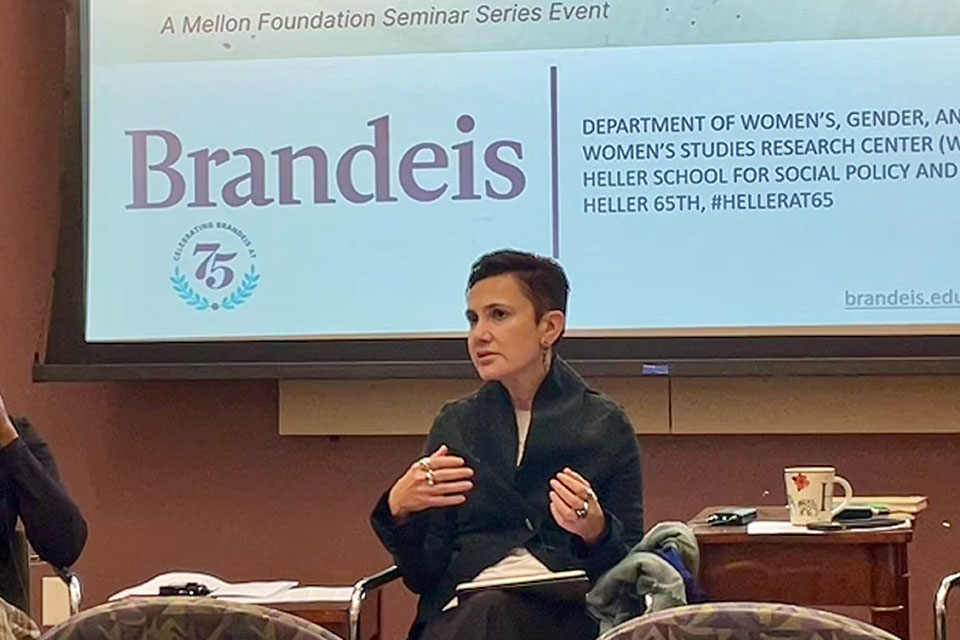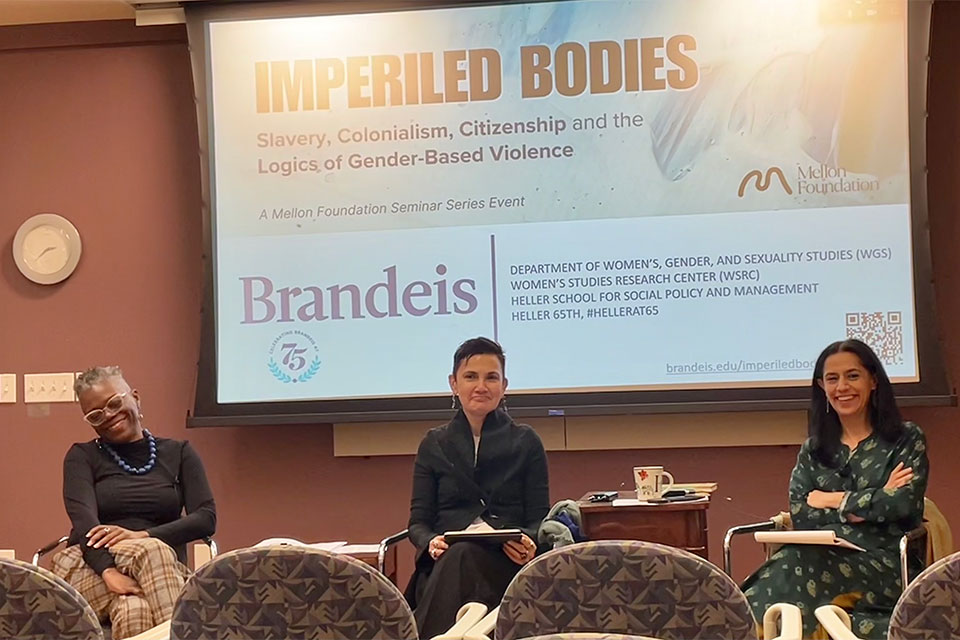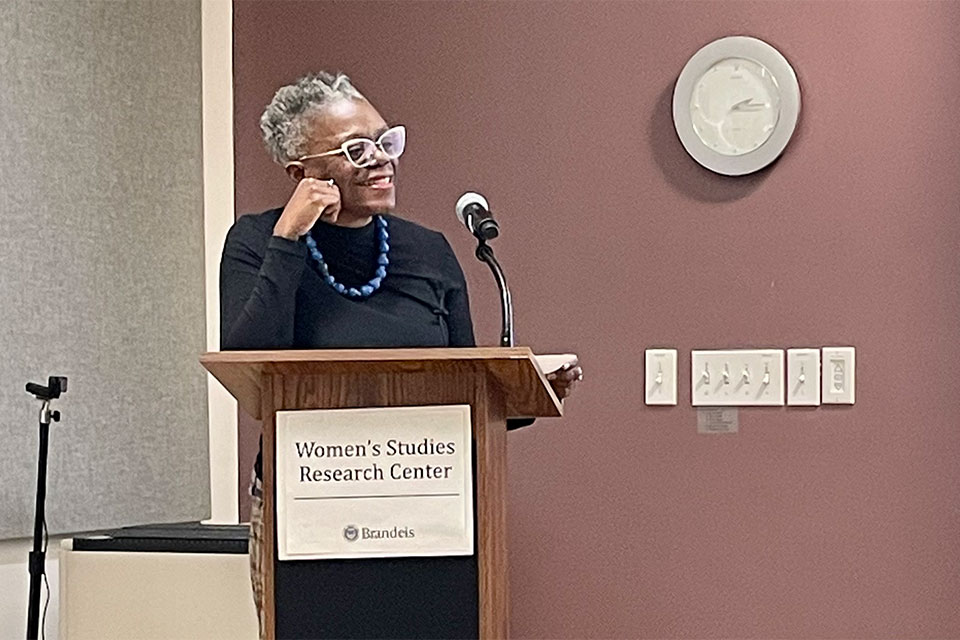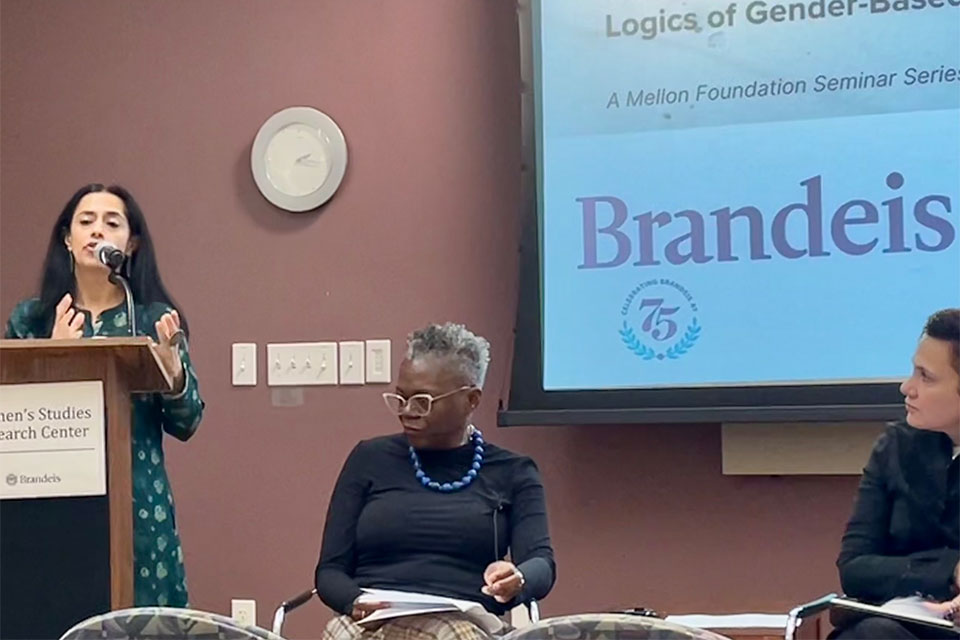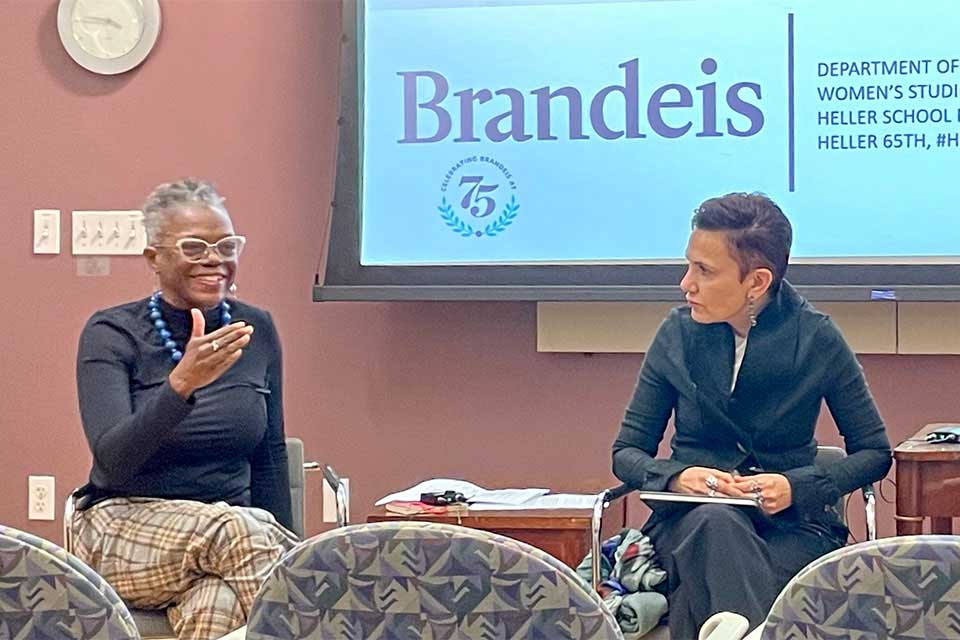Legacies of Colonial and Postcolonial Sexuality, Gender, Caste, and Citizenship
On Dec. 12, 2023, the Mellon Sawyer Seminar hosted the panel “Legacies of Colonial and Postcolonial Gender, Sexuality, Caste, and Citizenship.” Community members engaged with the linked Anglo-colonial histories of South Asia and the Caribbean through the work of esteemed scholars Jyoti Puri, Faith Smith, and Harleen Singh. The panel examined the logics of colonialism that permeate legal structures and social imaginaries well after emancipation and independence.
Colonialism organizes itself in many ways around sexuality, defined broadly in Jyoti Puri’s words as “who does what with whom and under what circumstances.” Formations such as demography, fertility rates, health, kinship, family, inheritance, and property “pivot around this concept of sexuality.” For this reason, Puri says, we must understand sexuality as “constitutive of the social” rather than as being constituted by the social.
Panelists provided myriad examples of sexuality as a key site of colonial and postcolonial social control. Harleen Singh outlined what she terms “rape scripts” that make and remake themselves under shifting conditions of governance, offering Rudyard Kipling’s 1888 poem “An Interesting Condition” as an example of a text that casts India as a “promiscuous woman” and describes the presence of the English in India using vocabularies of rape. Faith Smith historicized vagrancy laws in the British Caribbean - for example, an iteration in early 20th century Jamaica that regulated the intimate lives of upwardly mobile men primed to run for elected office. Smith underscored the value of tracing small-charge ordinances that regulate gendered clothing, religious and cultural practices, and more, emphasizing how the everyday, non-spectacular regulation of women in particular can otherwise fade from view. Jyoti Puri contextualized the anti-sodomy law in India (section 377 of the Indian Penal Code) through to its overturning in 2018 as a key tool in nation-making, a process inextricable from the production of race and caste. Puri went on to reflect on migrant Muslim and Sikh communities in the U.S. and Canada who faced legal barriers to funeralizing their loved ones in keeping with their cultural beliefs and yet persisted in such key death rites as sewing canvas shrouds and felling wood for funeral pyres.
When asked about how their various methods illuminate the relationship between the personal and the structural (a question inspired by Sara Ahmed’s insight that “The personal is structural. … [Y]ou can be hit by a structure; you can be bruised by a structure” [2015]), panelists outlined the potentialities of ethnography, archival work, and literary analysis. Puri underscored the value of critical practices that are multiphonal, conveying how cognitive, affective, and emotional facets of lived experience sound together. Smith relayed the powerful example of encountering what appeared to be a fictional short story by queer Jamaican-American writer Claude McKay, only to find that McKay had been writing at his desk as a policeman, narrativizing a real call to which a fellow officer had responded. McKay’s narrative illuminated his own tenuous structural proximity to the state-enacted punishment of genders and sexualities deemed nonnormative. Also reflecting on literary genre, Singh emphasized that the novel form provides “imaginative training” that can challenge selected social conventions (featuring a short-lived romance between a white man and an Indian woman, for example) while reinscribing those conventions most linked to social stability in Anglo-colonial and postcolonial contexts (marriage, inheritance, property).
Ultimately, panelists historicized what Anita Hill termed the formal and informal “violence of the law” while foregrounding the complex conceptualization of self-determination and the production of knowledge, even under hostile conditions. Anglo-colonial legacies may materially and ideologically circumscribe “who does what with whom and under what circumstances,” and yet postcolonial subjects claim space, breathe air, and forge culturally specific paradigms that far exceed colonialism’s insidious logics.
Posted by Carmel Ohman, Dec. 21, 2023. Updated Jan. 10, 2024.
This event was part of the year-long Mellon Sawyer Seminar, “Imperiled Bodies: Slavery, Colonialism, Citizenship and the Logics of Gender-Based Violence” led by PI Anita Hill, co-PI Harleen Singh, and ChaeRan Freeze at Brandeis University. Brandeis University sponsors and resources include the Heller School for Social Policy and Management, the Department of Women’s, Gender, and Sexuality Studies, the Women’s Studies Research Center, the Mandel Center for the Humanities, the Hadassah Brandeis Institute, the Feminist Sexual Ethics Project, the Rose Art Museum, the Kniznick Art Gallery, the Gender and Sexuality Center, and the Prevention, Advocacy, and Resource Center. This seminar is among the signature events of the Heller 65th Anniversary year, Celebrating Knowledge Advancing Social Justice #Hellerat65.
